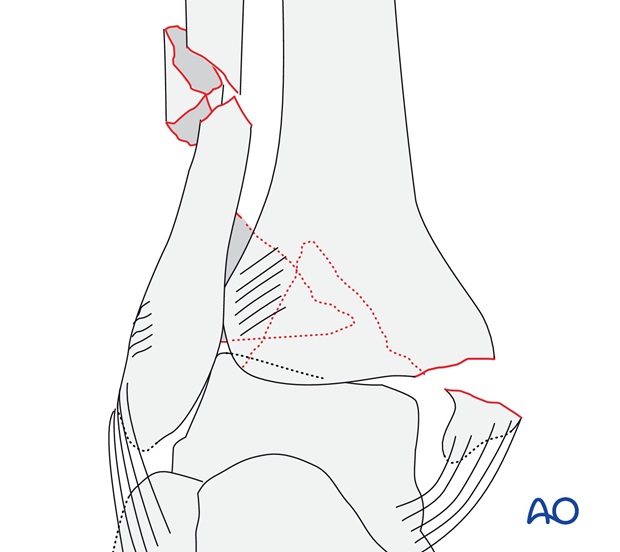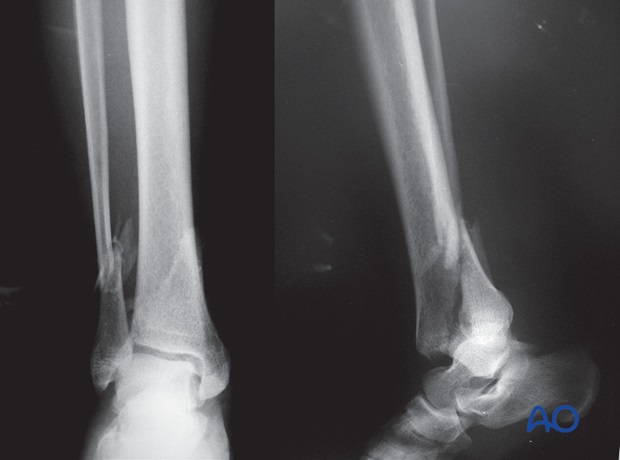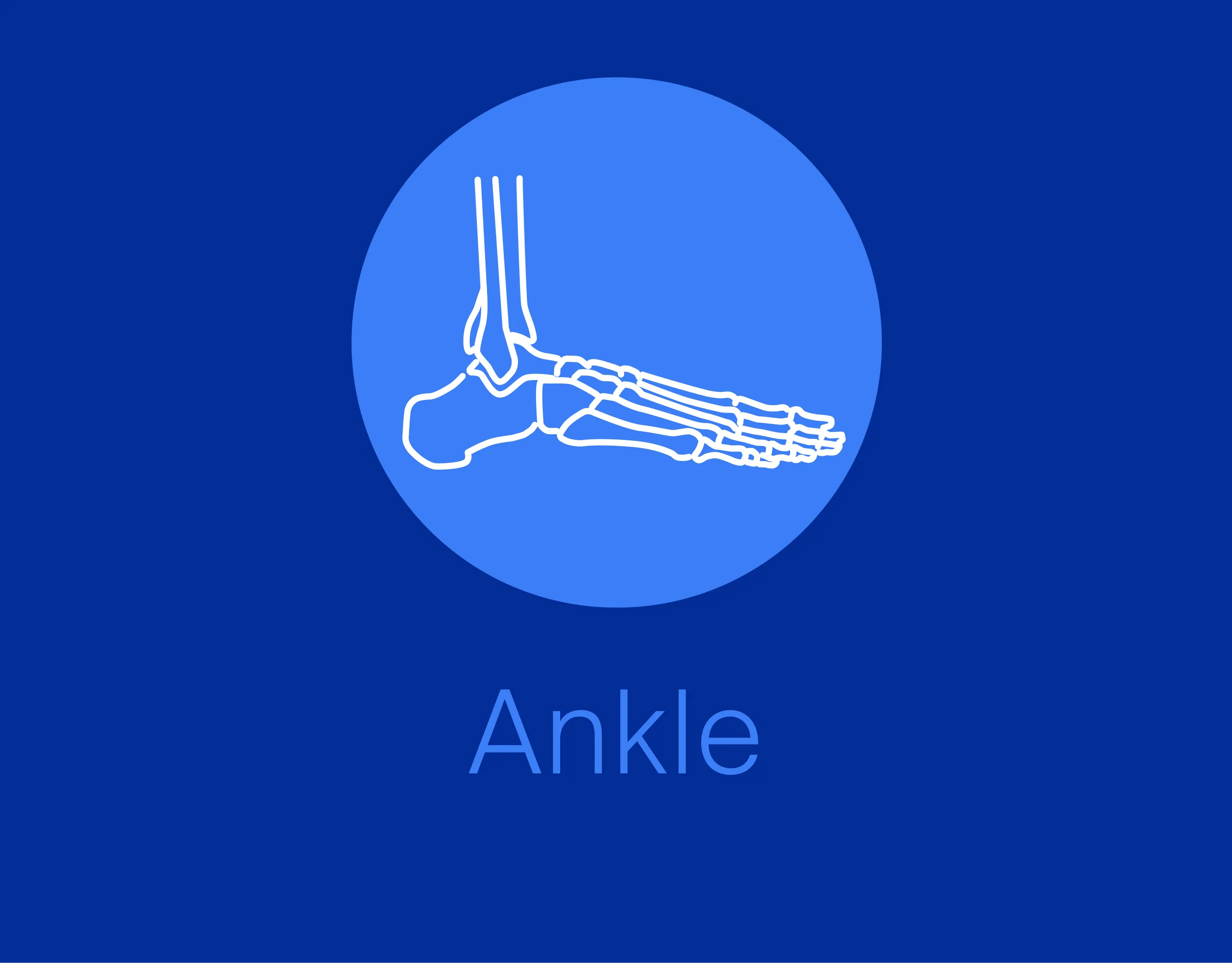Suprasyndesmotic multifragmentary fibula, medial injury, +/- posterior fracture
Introduction
Multifragmentary suprasyndesmotic diaphyseal fibular fractures combined with a medial lesion are classified as AO/OTA 44C2 fractures.
If the injury starts with the foot in pronation, when an external rotation force is applied, the first injury is a failure of the medial side, either with a deltoid ligament rupture, or a medial malleolar fracture. This frees the talus to move anteriorly as it rotates externally. The talus causes the fibula to rotate externally around its longitudinal axis, sequentially tearing the anterior and interosseous ligaments. Finally, the fibula fractures proximal to the syndesmosis. These are classified as AO/OTA 44C fractures, and correspond to pronation-eversion fractures, stages I-IV, in the Lauge-Hansen classification. This is an especially unstable joint lesion that may demand - depending on its stage – a syndesmotic positioning screw. If the fibular fracture is a multifragmentary fracture, above the syndesmosis, but still distal, it is classified as an AO/OTA 44C2 fracture. Complete radiological evaluation (AP, lateral and AP with internal rotation) is crucial for correct classification and decision making.
With rupture of the medial collateral ligament
If the injury on the medial side is a rupture of the deltoid ligament, and there is a multifragmentary suprasyndesmotic fibular fracture, this is classified as an AO/OTA 44C2.1 fracture.
The syndesmotic complex is always disrupted. In some cases, the posterior tibio-fibular ligament may be intact.
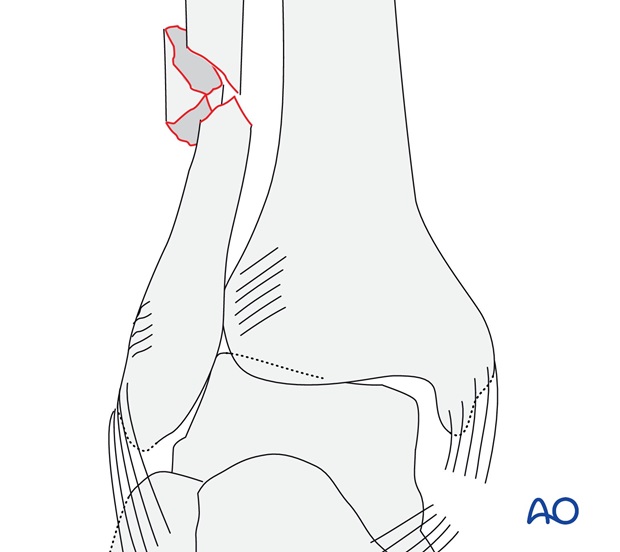
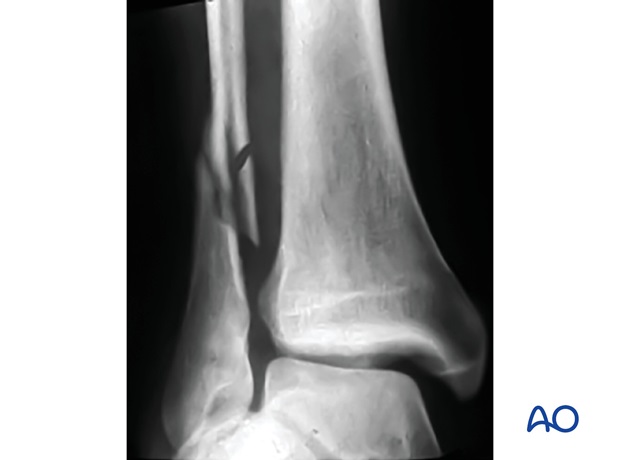
With fracture of the medial malleolus
If there is a multifragmentary suprasyndesmotic fibular fracture associated with a fracture of the medial malleolus, this is classified as an AO/OTA 44C2.2 fracture.
The syndesmotic complex is always disrupted. In some cases, the posterior tibio-fibular ligament may be intact.
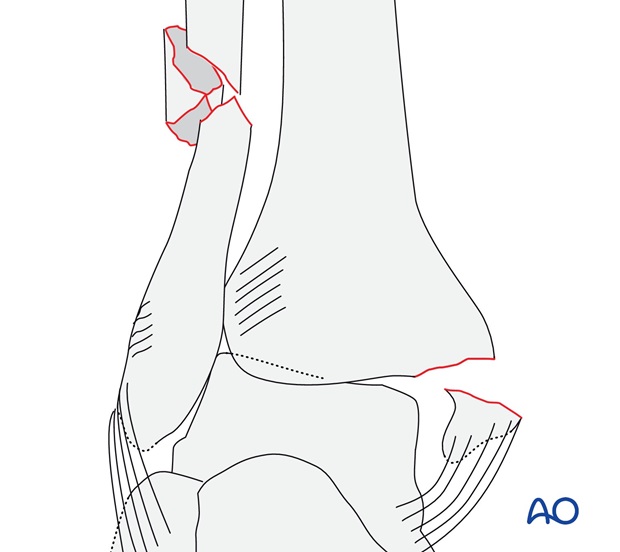
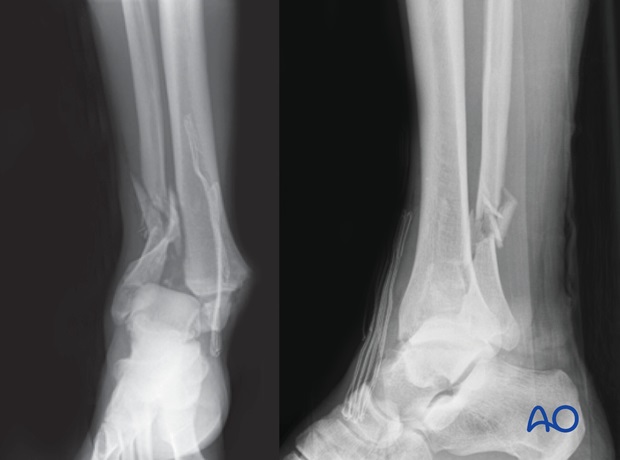
With fracture (medial malleolus) and a Volkmann's
If there is a multifragmentary suprasyndesmotic fibular fracture, associated with medial and posterior malleolar fractures, this is classified as an AO/OTA 44C2.3 fracture.
The syndesmotic complex is always disrupted. In some cases, the posterior tibio-fibular ligament may be intact.
In these injuries, the posterior fracture is usually an avulsion of the posterior tibio-fibular ligament from its posterior tibial attachment. Only rarely does the talus, impact against the posterior distal tibial joint surface. It is possible that some of these injuries represent vertical compression (posterior pilon) fractures, such as the x-rays below.
